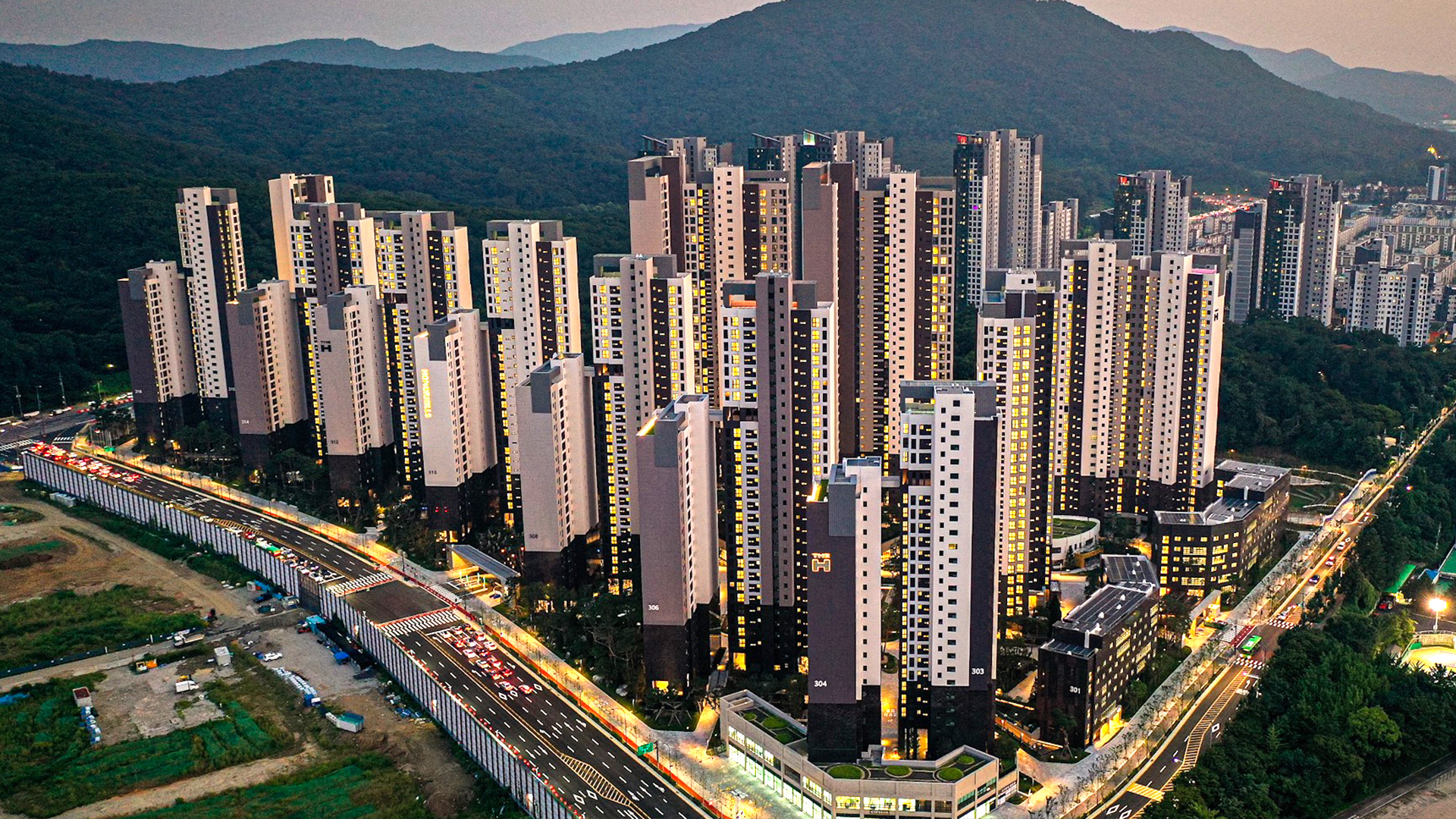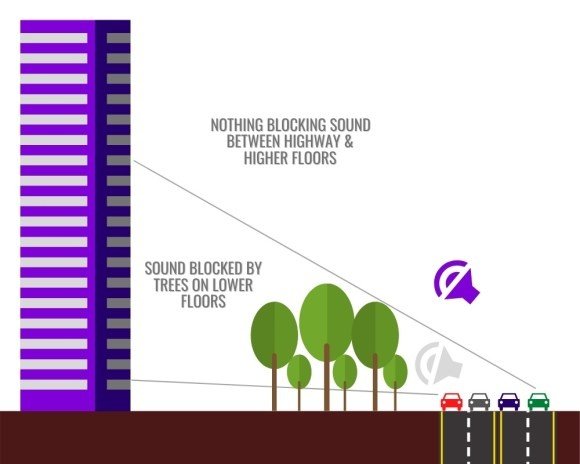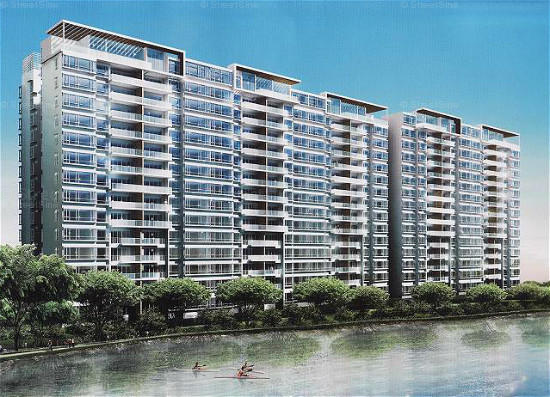Today we will talk about something light-hearted, non-financial but practical for everyone. In one of my previous articles, I talked about the financial and investment considerations when buying a house. Today we will talk about other non-financial factors, which either can make your living a more pleasant one, or to get you bonus negotiating points when you intend to sell it later. I have moved house about 10 times in my life, across different countries and different types of houses, so many of what I said below is a combination of theoretical knowledge and personal experience.
Orientation
If you are living in the northern hemisphere, it is good to buy a southward facing house, and vice versa. 2 videos below to explain it. First one is in Cantonese, but you can just look at the animation if you do not understand. Second one is in English. The videos explain well.
While the diagrams shown in the video are that of a single house by its own, but in modern day cities many houses are in high-rise apartments as shown below.

Anyone who lived in a high rise apartment before would know that minimally there are 2 rows of houses on each level, each facing the opposite direction. Sometimes a single level can have houses facing all 4 directions of North, South, East and West. What this means is that if you face the East and the West, you either get the morning sun or the evening sun shining directly into your house, which is hot especially during summer. If you are in the Northern hemisphere and buy a house facing North, you get no sunshine into your house all year round, which is still acceptable during summer but terrible during winter. The South facing house will get some sunlight during winter, which helps a lot.
If you live in a standalone house as shown in the video, then you may want to consider which part of the house you want to get the sun into. For example, Asian women hate to go out into the sun because they generally prefer fairer skin. If you build your house in such a way that the kitchen faces West, then you can be assured the women in the house doing the cooking will not be too excited about dinner preparations.
Airflow
If there is a smooth passage from the door across the house to the window, air can flow in freely from one end to the other. This will create good ventilation, which I like quite a lot. But for the air to flow better, one of the opening should at least have a big enough space in front. There can be no wind if there are obstructions all around. If you can find that, then a healthy dose of wind flowing through your house will be a common affair. My current unit is like that, and in Singapore’s hot weather, that certainly is a plus point.
Noise
If your house is facing the road or any noise source, then you will be dealing with noise pollution every day. Depending on the level of noise, you may have trouble sleeping or simply watching a movie at home after work. Resorting to closing all the windows will not block off all the noise, and it will make your room stuffy if you are someone like me who loves to open windows and doors for air flow and ventilation. If your apartment is located a little inwards or facing a direction away from the noise source, the noise pollution level will get much lower. Just like wind, noise can also be blocked easily if there are obstructions.
Using a similar concept, we find that the higher we go, the more the noise seems to be. Although many people will say noise amplify upwards, that is a misconception. It is simply because at the lower levels there are obstacles such as trees or lower level buildings to block the noise.

Noise sources need not only come from the road. Schools, playgrounds which children always get their outdoor fun, railway tracks, and even airports are some of the common noise sources. Essentially, identify the noise sources, then find a location where noise can be blocked off and not reach you.
View
Many of us like a good view. Opening your window and seeing a nice unobstructed expanse out in front of you is soothing. But do note that especially in land scarce places like Singapore, the open area you see now may not be there in the next 5 years. The nice open field in front of you can easily turn into a construction site, becoming your nightmare as you are in direct line of the noise and dust pollution, not to mention endless visits by the mosquitoes. That is why, when you select a view, it is best to go for views which will most likely remain unchanged.
Houses facing the sea, a river or reservoir will command a higher price because unlike deforestation, urban planning do not usually drain out a whole river or reservoir. For some reason, people generally like a water view more too.

Privacy
Some buildings tend to have long corridors, where houses line up along it. Usually the doorway to the house consists of one wooden door and one metal gate. If you like to keep the wooden door open for airflow, you should not choose a unit at the start of a long corridor, because everyone whose house is down the stretch will definitely walk by and peek into your house. As far as possible, try to find building structures with very short corridors, or try to get the last unit at the end of the long corridor if possible. Where I live now, the building has 3 corridors facing different directions, with only 2 units per corridor. That means the worst that can happen to me with regards to privacy is 1 family unit walking past my house, which is still acceptable.
Of course when considering privacy, we also have to look at the distance between each building. In China or New Zealand where land is big, sufficient space is allocated between each building. However in land scarce Singapore, often times the buildings are so close to each other that from your living room, you can look across to the next building and see what the people are doing easily with your naked eye. Hence finding a unit which people could not easily look into your house is actually a problem people have to consider in land scarce countries.
Age Of The House
Although properties are often marketed as 99 years, 999 years or freehold, the actual reality is the older your house or apartment gets, the more you will have to spend on repairs and maintenance. Ceilings can crack and fall, causing danger. If your house is made of wood, like many in New Zealand, you will have to worry about termite infestation. Due to natural wear and tear, such issues can and should be expected. Not only does this incur financial cost, but also undue frustrations, stress and effort to sort out the issues when they happen. I certainly would not be happy to see my house wearing down like a haunted place in a horror movie.

Level Of The House
In countries where there are pest lying around, lower level houses will see many pests. In tropical Singapore, the warm and humid climate is very conducive for pests like cockroaches and lizards. If you are living in the second or third levels, no matter how clean you keep your house, those pests from the ground floor can easily climb into your unit. I once had a cockroach flying into the window and hitting my head. If you are living on the ground floor, you should expect the occasional rats, centipedes, millipedes etc too.
Conclusion
While it is ideal to have as many of the above factors included as possible, one practical constraint is always the budget. With more money, you can get an ideal house. If not, you will really have to do sufficient homework, scout long enough and be patient until you find one that you are satisfied with. If budget is a constraint, then perhaps rank your preference in terms of priority and see what you can get. It would be too late to move in and then realise there are some intolerable factors you have to live with for the next few years.
Showing 1 - 3 out of 3
Page 1 out of 1
| - | Resources | Price | |
|---|---|---|---|
|
|
$5.00
|
||
|
|
$19.99
|
||
|
|
$0.00
|



When buying a house I am all about location, location, location! It’s always served me well.
These are all great points of consideration when looking to buy a house. Oh that poor child though! Always plenty of things we need to worry about outside of finances.
These are great point that someone needs to consider when buying a house. For me, it’s very important the orientation!
These are definitely important points to consider when shopping around for a house! Privacy is a big one, especially in the city.
Your insights on non-financial aspects of buying a house were invaluable. You highlighted often-overlooked factors that greatly impact the home-buying experience. Thanks for broadening my perspective and making this journey less daunting. More real estate wisdom, please!
I like the location of our house because it is close to everything. But I definitely would love a house that is not too close to neighbors. 🙂
so very true.. keeping orientation and airflow as well as all other factors you mentioned in mind make for a better home